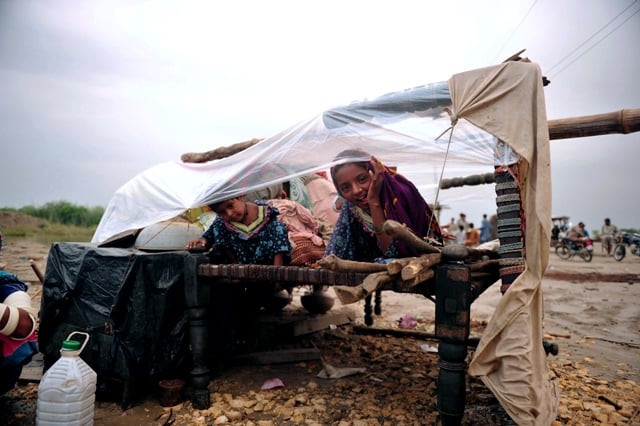Preventing disaster: With Thatto Declaration, experts press people to battle climate change
A plan of action to be framed in the next 12 months.

Pakistan tops the list of countries that have been worst hit by a change in weather patterns. The lives of millions of people in Sindh have been ruined by cyclones, floods and heavy rains. But some people are trying to change this. At a conference on climate change policy held at the Makli Gymkhana on Thursday, the ‘Thatto Declaration’ was adopted urging the government and civil society to do something to prevent any more disasters from unfolding.
The event, which was organised by the Society for Conservation and Protection of Environment (SCOPE) in collaboration with Drynet Pakistan, was attended by 150 participants.
The floods in 2010 affected around 20 million people in the country and 8.4 million more suffered great misery by the monsoon rains this year. “The government must reduce the damage caused by the disaster by providing education, healthcare and employment opportunities,” demanded the declaration.
It said that civil society must play a part in the fight against climate change. “Preventive measures to reduce disaster risk are most effective when they involve participation at all levels - from the local community to the national government and even the international community,” said Zulfiqar Halepoto of the Thardeep Rural Development Programme.
The declaration said that those present would frame a plan of action against climate change over the next twelve months. The NGOs expressed their desire to organise awareness programmes geared towards changing human, political and commercial behaviour towards climate.
“Bad governance, weak institutional intervention and poor infrastructure contribute to the plight of the people and eradiate their livelihoods,” said the CEO of SCOPE, Tanveer Arif. He was reading out a paper titled ‘Climate Change Challenges: Plight of Poor and Adaptation Strategies with Special Focus on Coastal Areas’ to the audience. He pointed out the absence of accountability of the government organisations which are responsible for disaster relief.
Dr Ghulam Qadir of International Union for Conservation of Nature said that poor people across the country are most vulnerable to the catastrophic effects of climate. Human activity multiplies the effect through a lack of disaster management planning, weak embankments of water channels and incomplete rehabilitation of the victims. Nisar Panhwar of the World Wildlife Fund, Prof. Dr Pervez Ahmed Pathan of the Sindh Development Studies Center and Mustafa Sarwar Abbasi of the Sindh Coastal Authority highlighted the gaps in the policies and suggested practical approaches to tackle the menace of climate change. They asked the government to give greater emphasis in developing the capacities of the disaster management authorities in order to mitigate the worst effects of climate change.
Published in The Express Tribune, December 25th, 2011.



















COMMENTS
Comments are moderated and generally will be posted if they are on-topic and not abusive.
For more information, please see our Comments FAQ